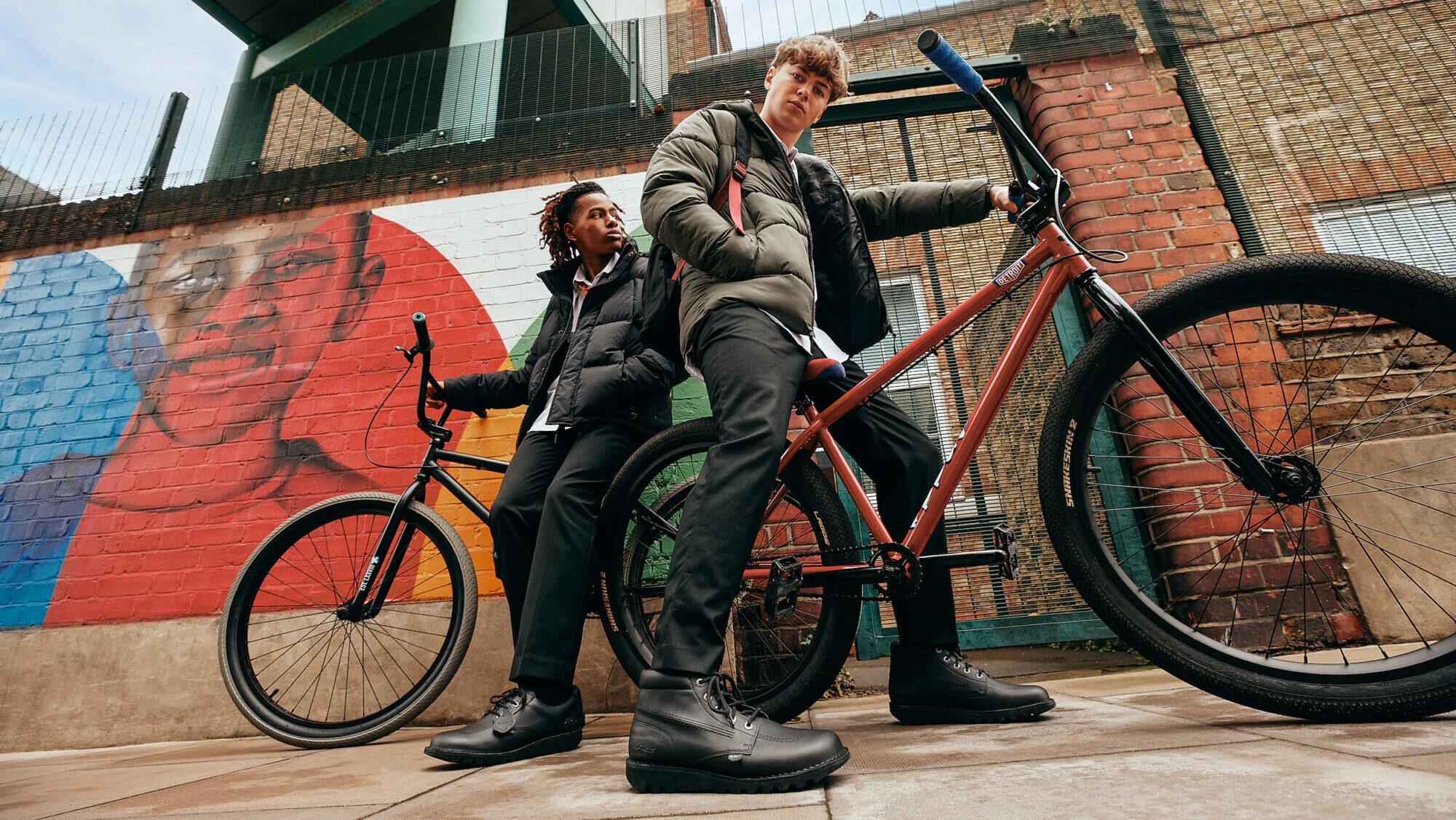This National Inclusion Week, we speak to Kian Bakhtiari, founder of The People, and Sara Brennan, Pentland Brands positive business director, to explore what an inclusive business could look like.
We first teamed up with the mission-led start-up in 2022 for The Pentland Collective to address career barriers faced by young people from underrepresented communities. Now we’re forming a youth advisory panel of young people and employees to act as a focus group to input into our future.
Together, the partnership is celebrating inclusivity and helping to bring diverse perspectives into the business.
What is The People’s purpose?
Kian: Our aim is to amplify the voices of young people and underserved communities. We started when we saw that they weren’t being included in decision-making processes. We also work with companies to help them diversify and future-proof their business through collaborations with the next generation of young people shaping the world.
Why is it valuable for businesses to embrace diverse viewpoints, specifically with younger people?
Kian: Fifty percent of the world’s population is under 30 and the average age of most board directors is 60. Similarly, 3% of people in Parliament are under 30. Young people want to create change, but they need to have an opportunity or outlet. And that’s what’s special about the Pentland Collective: it gives young people from around the world a platform to share their ideas and take action.
What are Pentland Brand’s diversity and inclusion ambitions?
Sara: We want to create a company that everybody feels a part of; to be the most diverse and inclusive organisation possible because we know the benefits of diversity. And that’s people being able to be themselves at work, which also leads to great performance. Working with The People gives us that insight-led data, which is important so we can start building the next steps at Pentland.
What role do employees play in fostering inclusivity?
Sara: Our employee networks have helped people feel like there’s a place they belong, whether they’re part of the community or not. These networks for Black Colleagues & their Allies, LGBTQ+ Colleagues & their Allies, Women & their Allies and Wellbeing foster inclusive conversations that help people in their day-to-day role, whether that’s tackling consumer or personal issues.
Kian: Increasingly, the question becomes, how do you collaborate? People want to proactively support inclusion, so how do you make this happens?
How can brands authentically incorporate inclusivity?
Sara: It’s about being purpose-led and helping with consumer needs, which our brands excel at. Speedo recognises a real need in underserved communities to learn swimming, a lifesaving skill. Now they’re lobbying government to get more people swimming. With Berghaus, there wasn’t a hijab for outdoor hiking that was actually fit for purpose. But by working with people from that community and understanding that consumers ask, they answered that need. And Kickers works with schools and colleges to understand young people’s issues. It’s Show Racism the Red Card partnership tackles some of these topics, and then it brings that learning into the business through anti-racism training.
How do you see the future of workplace inclusivity evolving?
Sara: At the moment, we look at inclusivity in a way that almost separates communities so we can serve their needs. I think the future will use a more intersectional lens. And that will be a way to elevate and evolve.
Kian: You can learn the future from what’s emerging on the periphery. From listening to our community, salary is important, but increasingly, it’s not the only way they make decisions. It’s also based on if they believe in the same values as the company, which I feel is quite a drastic shift from the past. Also, inclusivity can’t just be internal but what a business does externally.
Are there any new initiatives coming up?
Sara: We’re really excited about the upcoming workshop with The People on their Gen Z Muslim Report, which will be available to the whole business. It’s a good thing to do the right thing, but it’s a commercial benefit, too.
Kian: There’s a business case for being more inclusive; our Gen Z Muslim Report shows a £20 billion opportunity. In the UK, Muslims are the fastest growing population, but historically, there’s not been much communication on marketing to them because people haven’t really figured out how or it hasn’t evolved.
What advice would you give businesses starting their journey towards being more inclusive?
Sara: There are some really practical things. Start by gathering your D&I data to determine your organisation’s diverse make-up. These groups are vital because there’s that genuine need to come together and converse. Finally, there’s lots of partners out there to help, so do research and then ask for help because you can’t do it alone.
Kian: There’s so much to do but it’s important just to start. Begin by listening to employees to see the barriers to inclusion. You might not get it perfect, but as long as you consult with the communities and involve people, you’ll learn along the journey.
Find out more
The partnership between The People and Pentland Brands supports our positive business goal to support one million people in our communities. Learn more here.

